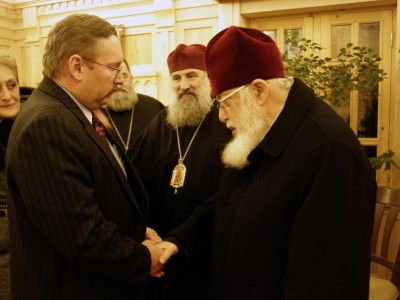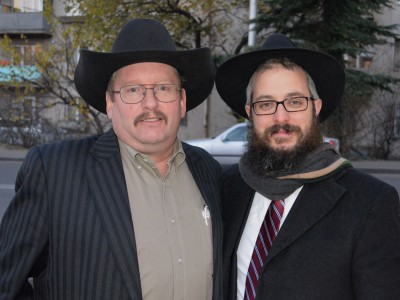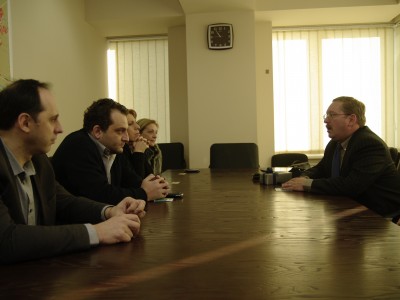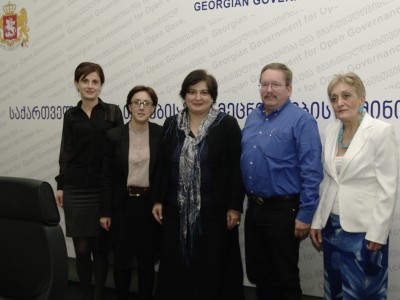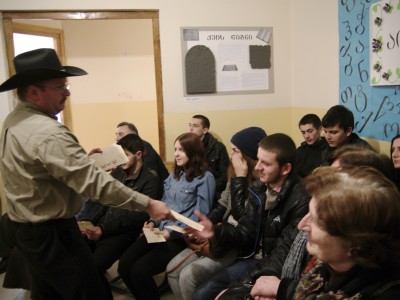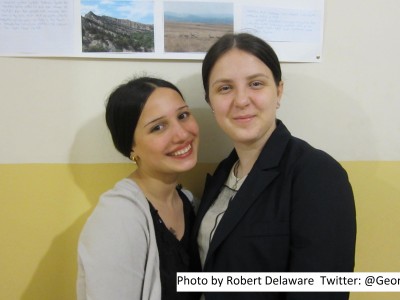Program Chance
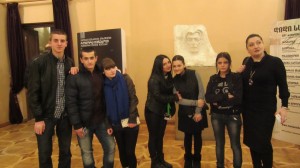
Students from Program Chance attending production of Shakespeare’s Hamlet.
Program Chance was established in direct response to the widespread growing number of aging out Eastern European orphans who, although talented and hard-working, would never have a chance to live up to their full potential.
Currently, the program exists only in Tblisi, the capital of the Republic of Georgia. It is is operated by volunteers who empower the children to learn life skills, excel in school, and live more productive lives.
Georgia is a country of about 4.8 million people, all living in an east-west valley between the Greater Caucasus Mountains on the north and the Lesser Caucasus Mountains on the south. It is about the size of South Carolina, bounded by the Black Sea on the west. About 80% of the people are Georgian Orthodox Christians.
The pilot program launched in November 2012 with 6 girls and 4 boys from orphanages in Tbilisi, capital of Georgia.
There are Four Steps in Program Chance:
-
TUTORING FOR HIGHER EDUCATION
Program Chance prepares the participants by accelerating their learning so that they are competitive with non-institutionalized peers and can successfully apply for admission into higher education (university and college programs or trade schools programs).
The participants are transported from their respective orphanages to a private school in the capital city of Tbilisi, twice a week, after their normal school day. There they receive a hot dinner and begin classes.
Pilot Program Academic Curriculum Subjects include:
- English Language
- Math
- Georgian Language and Literature
- Career planning/job seeking skills
-
LIFE SKILLS TRAINING AND COMMUNITY BUILDING
Program Chance prepares the participants for life outside of an institution or foster environment.
Simultaneously with the academic tutoring, a psychologist and mentors lead the training of the participants in social and mental health life skills to teach them to function outside of the orphanage or foster environment. The psychologist and other mentors also provide emotional support.
In Program Chance, a psychologist meets with the participants once a week for one hour throughout the school year. In addition, she (together with the program director and the group manager) provide educational, cultural, and community building group excursions outside of the school to stores, museums, theaters, etc. Activities for the summer months (when school is not in session) are also a part of the program.
Life Skills Curriculum Subjects include:
- Money Management: Budgeting, opening and maintaining bank accounts etc.
- Health Education: Nutrition, substance abuse, hygiene, parenting, first aid, leisure, etc.
- Social Behavioral Skills: Activities to improve interpersonal relationships, problem solving, leadership, sexual responsibility, communication, and community building skills.
- Self-esteem and self-respect training.
-
HIGHER EDUCATION SUPPORT
Program Chance provides financial, emotional and life skills support to participants throughout their higher education.
-
TRANSITION INTO SOCIETY
Program Chance provides financial, emotional and life skills support to participants throughout the participants’ transition into the “real world,” including assistance in finding a job.
In Program Chance, each selected group of students will be a part of the program for 4-6 years. Every year, a new group of participants will start the program. This process will continue without interruption. Program Chance’s success will be measured by the number of participants who successfully enter society and the workforce.
Program Chance is a program operated under the Ele Lembra umbrella. Please make a donation now. Ele Lembra is a 501c3 public charity. Donations to Ele Lembra are tax deductible with the United States IRS.


